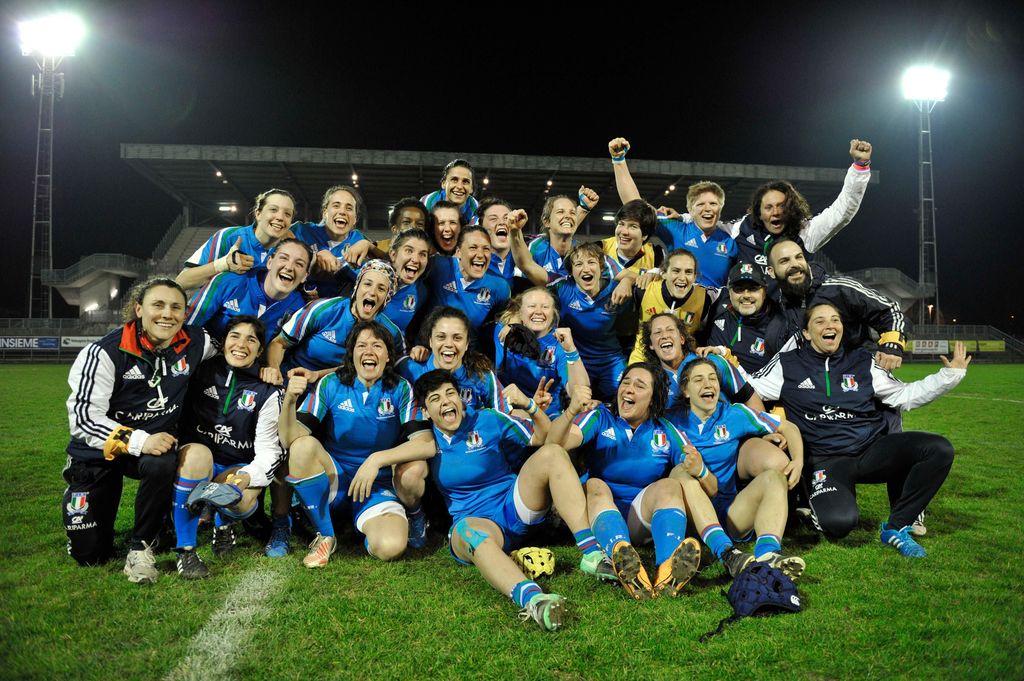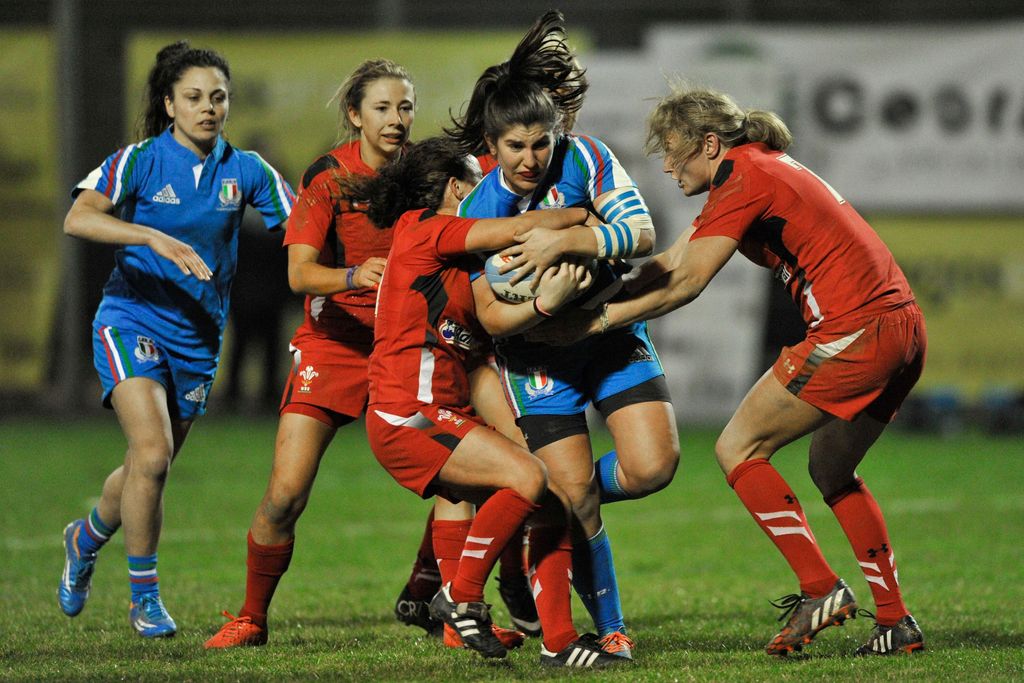Italy women’s team manager Giuliana Campanella insists her side are no overnight success story, the 38-year-old crediting this year’s historic third place finish in the RBS Women’s 6 Nations to years of improvement behind the scenes.
After beginning with defeats to eventual champions Ireland and world champions England, Italy - under coach Andrea di Giandomenico - enjoyed consecutive victories against Scotland, a France team then going for the Grand Slam and Wales to bow out on a high and put themselves in pole position to qualify for the next Women's Rugby World Cup in 2017.
“The secret of this year is contained in previous years where over time we have gained a wealth of experience, both tactically and in game management, which has led to our success,” Campanella said. “Having a good organisation and clear goals has enabled us to focus on getting the small details right in training, and I think our defence has improved.”
@AndyVilk @Federugby Italy's women's team are getting better and better. Really good for the future of women's rugby In Europe :)
— Tamara Taylor (@Timmytammy8)
March 2, 2015
Having shipped 11 tries and 69 points in the first two games, Italy’s line was only crossed four more times in the concluding three games, while an impressive 13 tries were scored at the other end.
Maria Magatti accounted for five of those tries and the Monza winger says familiarity played a significant part in her side’s strong finish to the tournament.
“It is difficult for us to build together as a team because during the year because we play for different clubs and only meet up and train together as a national squad on a few occasions,” she pointed out.
“That said, over the last few years we’ve trained more conscientiously because we know that to become better players we have to become better athletes. In fact, during the Six Nations we improved our way of playing with every match because we learnt to play together.”

A crowd of around 3,500 watched Italy bow out with a 22-5 win over Wales at the Stadio Plebiscito in Padua, a record for a women’s international in the country and another sign of the sport’s growing popularity.
“I think this is a growing world trend, the last World Cup demonstrated this,” said Campanella, the former national team captain with over a half-century of caps at centre. “From our perspective this is reflected both in terms of player growth and the large following the national team enjoys. There is a good bond between the clubs and the Italian Rugby Federation which will help us continue to grow and move forward.”
Qualifying for WRWC 2017 would provide further momentum, and with three wins under their belt already it would take a massive turnaround in fortunes for Scotland to deny them a place as one of the best two sides across the 2015 and 2016 Six Nations outside the already qualified England, France and Ireland.
Scotland would realistically need to win four games in the 2016 tournament - they haven't won a Six Nations match since beating France in February 2010 - and hope Italy suffer a whitewash to climb above the Azzurra.
“After the disappointment of missing the tournament in 2014, everyone started to work and train with the focus on the next World Cup,” Magatti said. “We are determined to achieve our goals, but we’ll have to improve our skills because the competition is so tough.”
Photo: Fotosportit

